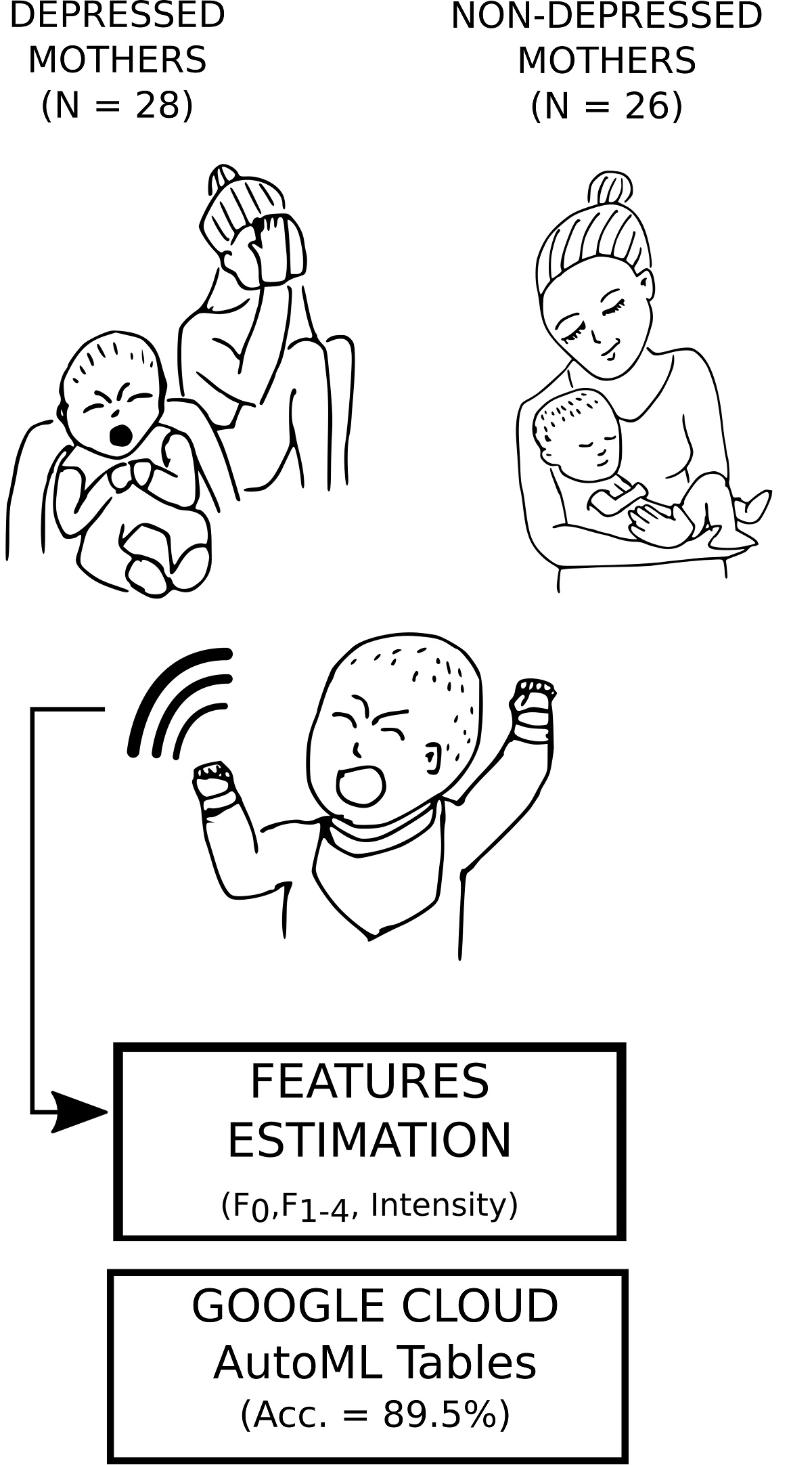Postpartum depression (PPD), a condition that affects up to the 15% of mothers in high-income countries, reduces attention toward the needs of the child and it is among the first causes of infanticide. PPD is usually identified using self-report measures and therefore the diagnosis may not always be valid. Previous studies highlighted the presence of significant differences in the acoustical properties of the vocalizations of children of depressed and healthy mothers. In this study, cry episodes of infants of depressed and non-depressed mothers are analyzed to investigate the possibility that a machine learning model can identify PPD in mothers from the acoustical properties of infants' vocalizations. Acoustic features (F0, F1-4, Intensity) are first extracted from recordings of crying infants, then novel cloud-based artificial intelligence models are employed to identify maternal depression versus non depression from estimated features. Trained model shows that commonly adopted acoustical features can be successfully used to individuate Post-Partum Depressed mothers with very high accuracy (89.5%).

